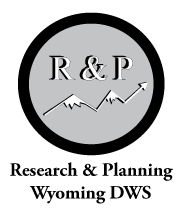The Great Recession and Financial Security
The U.S. entered the Great Recession (2007-2009) in December 2007. It was the most severe recession since the end of World War II. From October 2008 through March 2009, monthly job losses averaged 712,000, marking it as the largest six-month period of job losses since 1945 (Goodman & Mance, 2011). As of January 2012, the U.S. economy needed 6 million new jobs to get back to the 2008 employment level (Censky, 2012). Because of declining employment and incomes, approximately 5 million Americans lost their employer-based health insurance during the most recent economic downturn (Holohan, 2010).
Job loss impacts individuals' and families' financial security ("10 Firms," 2010). In most cases, less money is available to pay for health care services and/or to save for retirement. When income declines, the loss of employer-sponsored health insurance may cause some people to forego health services (Catlin, Lassman, Martin, & Whittle, 2011). Although the average annual number of health care visits has been declining over the last decade, overall spending on health care has continued to rise (Rampell, 2012). According to a report by the U.S. Census Bureau (2012), the average person age 18 to 64 visited medical providers 3.9 times in 2010, compared to 4.8 times in 2001. Both healthy and unhealthy Americans said they went to the doctor fewer times in 2010 than they did in 2001. Despite fewer visits, household spending on health care is markedly higher now than in 2001. In 2001, total average annual household expenditures were $39,518, of which health care constituted 5.5%. By 2011, health care accounted for 6.7% of total annual average expenditures of $49,705. This represents an increase of 51.8% in income spent on health care. As a comparison, expenditures on transportation rose by only 8.6% over the same time period.
Previous: A Brief Introduction to Health Insurance and Retirement Plans | Next: Selected Wyoming Labor Market Data
